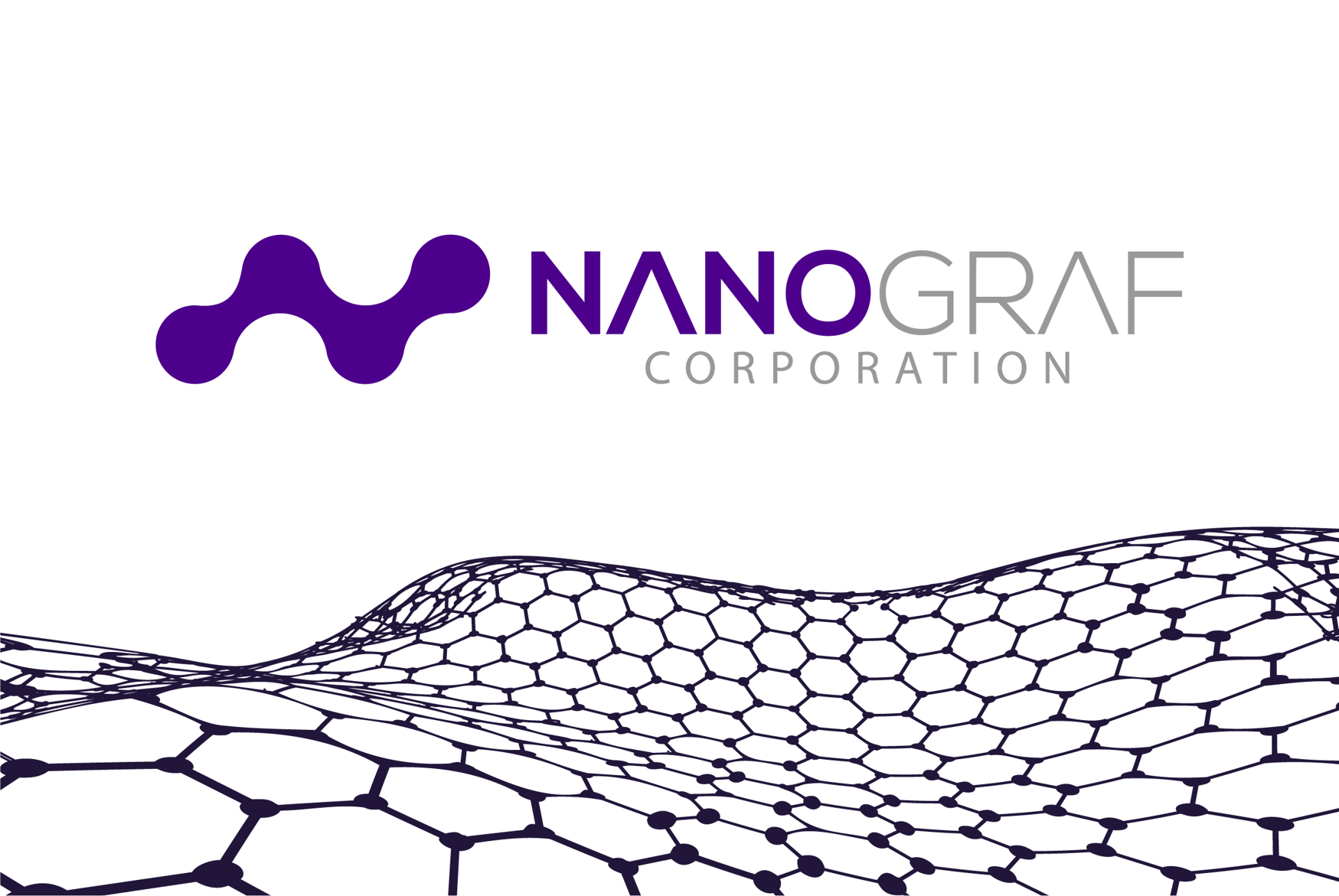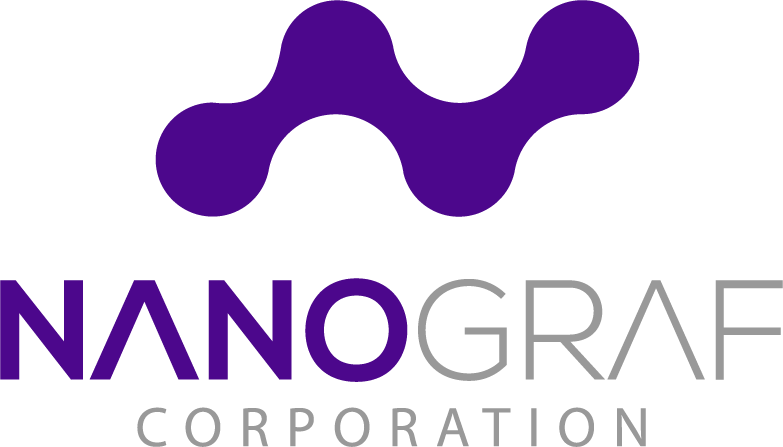
Podcast: NanoGraf on US EV Infrastructure
Tech company NanoGraf has been developing an advanced material for lithium-ion batteries that they say could help EVs improve their range and performance by upward of 40 percent while significantly reducing manufacturing costs.
NanoGraf President Chip Breitenkamp talks about the new technology and why the U.S. needs to become self-reliant when developing electric vehicle components.

Through the Noise Podcast #592
Dr. Francis Wang serves as the Chief Executive Officer for NanoGraf Technologies, a leading advanced materials company in the energy storage space. He brings over 20 years of experience in technology innovation and commercialization in the energy storage and clean energy industries.
NanoGraf is an advanced battery material company whose patented silicon-anode technology enables longer-lasting, higher-energy, and higher-power lithium-ion batteries.

Leaders in Cleantech Podcast
More energy dense, faster charging batteries. Batteries, or any energy storage of all natures, are so critical to the ongoing energy and mobility transitions. One of the areas that doesn’t get much thought, but is so critical, is material science, the materials which enable bigger, better, faster, more efficient batteries. This week I speak to Francis Wang, CEO of Nanograf. From PhD to entrepreneur and CEO, he has a great story to tell, and some superb insights into both the startup entrepreneurial journey, and the whole battery industry. I hope you enjoy the episode.

NanoGraf Founder Samir Mayekar on Michael Fassnacht Podcast
Samir is a tri-sector leader who has played executive roles in public, private and nonprofit sectors. He served in the U.S. government during the Obama administration; and prior to his work with Mayor Lori Lightfoot on economic development, Samir was the CEO of NanoGraf Technologies–an international company built around Northwestern battery technology.

Trendspotting: Chemistries, Manufacturing, EV Market in 2022
The battery supply chain crisis will extend through 2022. In 2022, Asia’s dominant position as the world’s leader in the lithium-ion supply chain will continue, but it is expected that Asian suppliers across the value chain will be challenged with supply chain constraints. Just how long and wide-reaching the bottlenecks persist may very well depend on the impact of the Omicron variant.

Building the Battery of the Future
We see disasters on the news – extreme weather, failing power grids, rising sea-levels, and more. Francis recognized that in order to solve these challenges you needed to disrupt, take chances, and innovate.
Some of Francis Wang’s favorite childhood memories are of doing science experiments with his father. Francis’ father was a chemist and planted the early seeds of innovation and creative thinking. In his favorite experiment, Francis grew crystals in plastic cups and figured out how to make the crystals bigger.

BATTERY EVOLUTION, EV THAT RUNS TWICE
Efforts are underway to limit the performance of lithium-ion batteries for electric vehicles (EVs). U.S. startups and SoftBank have each devised electrode materials to double their capacity. The cruising range extends proportionally. The company aims to put it into practical use after 2022. There is a high possibility that technology can be diverted to all-solid-state batteries, which are said to be the favorite of the next generation, and competition for development is intensifying.

New Silicon Anode Technology Promises 28 Percent Longer Run Times
Chicago-based NanoGraf says it has developed a new silicon-based battery chemistry with much higher energy density than is currently available.

From the American heartland, a startup Boom
According to Francis Wang, the CEO of NanoGraf (a Chicago-based battery tech company with just under $25 million raised), “the Midwest not only has a deep talent pool with top universities and national labs, but is also quickly becoming a ‘quality of life’ alternative to the West Coast.”
According to the startup executive, the result of the quality-of-life conversation is that they are “increasingly seeing talent finishing their education in the Midwest and deciding to stay.”

Liquid Metal Could Soon Power Your Wearable
The global market for batteries continues to grow, as demand for battery power accelerates across several industries, from electric vehicles (EVs) to electronic devices, and for energy storage in the power generation sector. New battery materials are being developed as manufacturers look for ways to increase energy density and provide longer-lasting modes of power.
All the News Is Coming Up Silicon
At the beginning of this month, batteries made a big splash in the news in an unlikely place: a wearable device with a new kind of battery hit the market, and major news outlets were quick to laud this silicon-ion anode technology for its potential applications in long-term energy storage and electric vehicles.

Chevy Bolt Fires Has Battery Industry Scrambling To Ensure EV Safety
NanoGraf's technology is also centered on silicon to create more energy dense batteries by replacing the more widely used graphite in anodes with silicon. Wang says the batteries offer 29% more run time than graphite-based batteries, and that has the U.S. military interested.
NanoGraf’s Francis Wang says the only way to ensure no batteries with defects reach consumers is to inspect every one of them before they leave the factory. That's the policy for batteries used in medical device implanted in humans, but not so in the cost-conscious auto industry.

The Start of a New Phase in American Manufacturing
On August 5th, President Biden signed a monumental executive order that set an ambitious new target for American auto manufacturers: 50% of new model sales will run on electric batteries by 2030. For context, electric vehicles accounted for only 2.2% of US light-vehicle registrations through May 2021, but the forecast is bright.

Dr. Francis Wang featured on Through The Noise Podcast #581- Creating Batteries with Record Efficiency
In this episode Dr. Francis Wang, the Chief Executive Officer for NanoGraf Technologies, discusses the company's Si-Anode technology and value proposition, the complexity of battery design, the state of the lithium-ion battery market, the company’s strategy going forward, and so much more!

Battery Material Startup NanoGraf Welcomes Former General Motors Executive Dave Stenson as an Industry Advisor
NanoGraf, today announces the appointment of former General Motors (GM) executive Dave Stenson as an advisor to its team. The move will support NanoGraf in its continued efforts to develop the longest-lasting, highest-energy, and highest-power lithium-ion batteries for electric vehicles and consumer electronics.

An Exciting Milestone in Battery Development
In the past 20 years, I’ve never felt more excited to be a part of the American battery landscape. The popularity of electric vehicles (EVs) and other applications for batteries is skyrocketing.

This Startup Says Their Battery Tech Beats Rivals By 10 Percent
The drive to a better lithium-ion battery has often hit a wall in the lab, with teasing innovations that can’t make the leap to scale and success. NanoGraf believes it can make that leap, and in the process lighten the battery load for U.S. troops carrying or otherwise porting electronic equipment in the field. The Chicago-based startup has unveiled an 18650 lithium-ion cell it claims has the world’s highest energy density of its type: 800 watt-hours per liter.

Ask a Climate Innovator - Dr. Francis Wang, CEO at NanoGraf
NanoGraf announced a major battery performance milestone — the development of a 800 watt-hour per liter (Wh/L) silicon-based anode battery cell. This is the highest energy density 18650 cylindrical lithium-ion cell in the world and provides a 28 percent longer run time than traditional cell chemistries.

NanoGraf develops battery chemistry material with significant energy density increases
The company’s silicon-oxide anode material can increase battery capacity in the 18650 form factor by an initial 12% at a potentially commercially competitive price.

EGEB: NanoGraf achieves 28% longer run time in a 18650 Li-ion cell
Chicago-headquartered NanoGraf Technologies today announced a major battery breakthrough. It claims it has enabled the highest energy density cylindrical 18650 Li-ion cell in the world. The company says that the 800 watt-hour per liter (Wh/L) silicon-anode based cell provides a 28% longer run time than traditional cell chemistries. It’s working with a top-tier battery company to manufacture its batteries.
